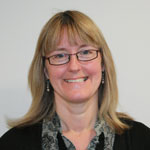Examining Board EdExcel
Reasons For Studying This Subject
GCSE Statistics will expand your mathematical knowledge and skills in understanding, analyzing and presenting data. It will help with lots of other subjects and make you a better informed and more competent decision maker.
What You Will Be Studying
Statistics involves diadrams and calculations and being able to make comments and conclusions.
How You Will Learn
We will look at data presented in various ways, draw diagrams and do calculations. We will then look at our results and see what they are telling us about the data and make conclusions.
How You Will Be Assessed
There will be tests on a regular basis during year 10, with a year 10 exam in the summer term. You will then have a mock exam in the autumn term of year 11. At the end of the course you will sit two exam papers.
Who can choose this course?
The mathematical content of this syllabus is quite demanding so this option is only available to students in maths sets 9X1,9X2,9X3,9Y1,9Y2 or 9Y3.
General Information
For GCSE Statistics it is assumed that every candidate has the use of a calculator. It is necessary to purchase one. These can be obtained through the school or from many other outlets. All students will require a Scientific Calculator with Fractions, Powers, Brackets, Trigonometry and Statistics functions.
Contact: Mrs. C. Alderman – Head of Mathematics Faculty
Careers In Maths
Almost all jobs need maths to some extent. If you really love maths then the following will make interesting reading!
Labour market information
Good mathematicians are in short supply so you can earn a really high wage ! The workforce is projected to grow by 5.7%over the next few years. For more info try the LMI web site
Learning Pathways
If you want a career that uses maths you can take A Level Maths and A Level Further maths in the 6th form, or AS Core Maths. You can then do a degree in maths at university followed by a masters.
- Auditor: £70,500
Auditors examine and prepare financial records while checking for their accuracy, then explaining their findings to key stakeholders. Internal auditors check for mismanagement of an organization’s funds and identify ways to improve processes for eliminating waste and fraud.
- Data or Research Analyst: £83,390
Data analysts use advanced mathematical and analytical methods to help businesses investigate complex issues, identify and address inefficiencies, and make strategic, data-driven business decisions.
- Computer Programmer: £84,280
Computer programmers write and test code computer application and software program code. These professionals update and expand existing programs, check programs for errors and fix faulty lines of code.
- Medical Scientist: £84,810
Medical scientists form hypotheses and develop experiments, often using clinical trials and other investigative methods to research their findings. A medical scientist who performs cancer research may experiment with a combination of drugs that could slow a cancer’s progress, for example.
- Financial Analyst: £85,660
Financial analysts evaluate investment opportunities in banks, pension funds, mutual funds, securities firms, insurance companies, and other businesses.

